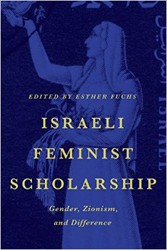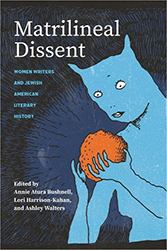An in-depth study of Jewish religion and law in Israel from a gendered perspective.
In Holy Rebellion, Ronit Irshai and Tanya Zion-Waldoks examine social change in Israel through a rigorous analysis of the shifting entanglements of religion, gender, and law in times of cultural transformation. They explore theological, halakhic, political, and sociological processes and show how they interact with one another in ways that advance women’s rights, as well as how they are met with a conservative backlash in the discourses and actions of the rabbinic establishment. Irshai and Zion-Waldoks build on legal philosopher Robert Cover’s 1982 paper “Nomos and Narrative,” which explained how cultural narratives and legal norms are reciprocally enforced or transformed. Expanding on this notion, Irshai and Zion-Waldoks propose a “narrative ripeness test,” an analytic tool that evaluates the relationship between culture and law to assess how and when change within a minority cultural community may be accelerated or hindered by state intervention.
Religious feminisms are emerging around the world, not solely in Israel, and this book helps elucidate how they create enduring and radical change. Many liberal states are also confronting an illiberal backlash and question the multicultural framework’s ability to serve the needs of minorities within minorities. Therefore, the theoretical framework offered by Irshai and Zion-Waldoks is applicable beyond the Israeli case, even as it offers deeper insights into an Israeli society in turmoil.

Holy Rebellion: Religious Feminism and the Transformation of Judaism and Women’s Rights in Israel
Discussion Questions
Even the full title of this book hardly conveys its depth and scope; in Holy Rebellion, coauthors Ronit Irshai and Tanya Zion-Waldoks’s probe into all corners of a religiously observant feminist’s life and make sophisticated, social scientific analyses of the religious feminist revolution.
The authors cover everything from private bedroom behaviour in observance of niddah [laws governing sex and ritual purity] to issues of modesty in dress, to authority in rabbinic ordination of women, to legislative power in civil and religious courts, to enhanced roles for women in communal prayer settings, to the proliferation of Torah study institutions for girls and women, to locating the aguna issue in Jewish divorce law in the context of injustice and as paradigm of the male – female power struggle. They not only identify large changes but also understand the significance of miniscule ones.
Backlash against feminism is not surprising, and as insiders, the authors are uniquely equipped to address it head-on. They knowledgeably supply the halakhic underpinnings of religious women’s behaviour, savvily trace changes and developments in the law over time, and, simultaneously, strive to maintain a religious community. This book will likely become a classic in the ever-growing field of religious feminist literature. Although it focuses on Israeli Judaism in particular, the work will also serve other religious groups grappling with issues of tradition and change. The authors have created not only a useful paradigm for other faiths, but also a useful tool, the “narrative-ripeness test,” to predict when the state will intervene to enable or hinder what feminists define as progress.
Who knows but that the labors of the scholarly, activist, religious, feminist authors will help to bind up Israel with other nations of the world …

Help support the Jewish Book Council.



